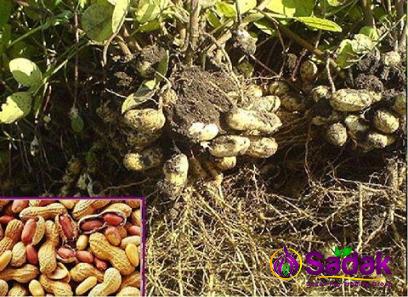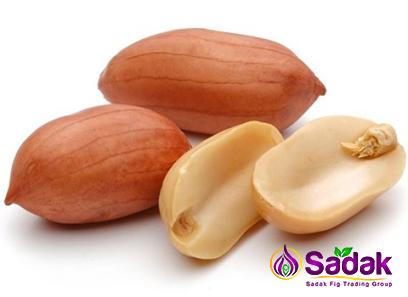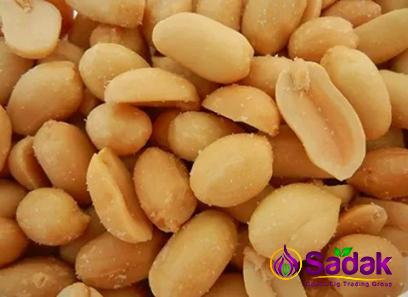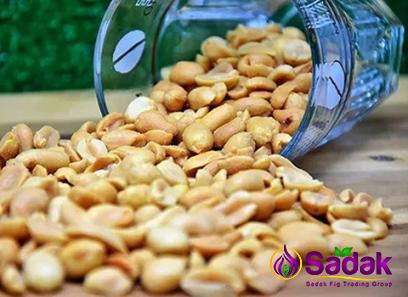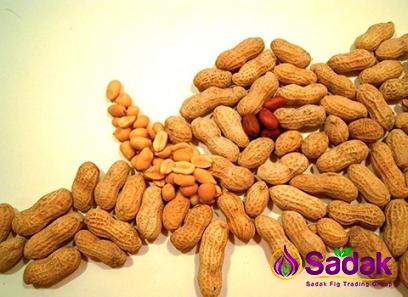The cashew nut industry has experienced remarkable growth over the past decade, fueled by increasing global demand for healthy and natural snack options. Cashews are not only popular for their delicious taste but also for their numerous health benefits, making them a sought-after commodity in both local and international markets. This summary will delve into the factors driving the growth of the cashew nut industry, highlighting the key players, market trends, and anticipated future developments.
1. Rising Consumer Awareness and Preference for Healthy Snacks:
In recent years, there has been a significant shift in consumer behavior towards healthier snacking options. Cashew nuts, known for their high nutritional value and several health benefits, have gained considerable popularity as a convenient and tasty snack. Cashews are a rich source of protein, vitamins, and minerals, and they also contain healthy monounsaturated fats, making them an attractive alternative to less nutritious snack choices. This growing health-consciousness among consumers has positively impacted the demand for cashew nuts across the globe.
2. Increasing Global Population and Changing Dietary Patterns:
The global population is continually increasing, and as a result, the demand for food products, including cashew nuts, is also rising. Additionally, changing dietary patterns, such as the increasing adoption of vegetarian and vegan lifestyles, have contributed to the growth of the cashew nut industry. Cashew nuts serve as an excellent plant-based source of protein and healthy fats for individuals following these trends, further driving the demand for cashews.
3. Growing Market Penetration in Developed and Emerging Economies:
The cashew nut industry has witnessed tremendous growth in both developed and emerging economies. In developed markets such as the United States and Europe, consumers are increasingly opting for healthier snack options, leading to a surge in the demand for cashew nuts. As the popularity of cashews continues to grow in these regions, manufacturers and producers are strategically expanding their operations to meet the rising demand.
Furthermore, emerging economies like India, Vietnam, Brazil, and West African countries have become key players in the cashew nut industry. These regions have seen significant investments in infrastructure, technological advancements, and agricultural practices, enabling them to increase production and export of cashews to meet global demand.
4. Technological Advancements and Agricultural Practices:
Technological advancements in farming practices have played a crucial role in the growth of the cashew nut industry. Enhanced cultivation techniques, improved irrigation methods, and the use of modern machinery have increased crop yield and quality in cashew nut-producing regions. These advancements have not only expanded the global supply of cashews but also reduced production costs and enhanced the overall efficiency of the industry.

5. Government Support and Promotion of Cashew Cultivation:
Many governments in cashew nut-producing regions have recognized the economic potential of the industry and have actively supported its growth. Governments offer financial incentives, subsidies, and training programs to farmers to encourage cashew cultivation. These measures have resulted in increased production and export, boosting the overall growth of the cashew nut industry.
6. Diversification of Cashew Nut Products:
The cashew nut industry has witnessed a diversification in product offerings to cater to diverse consumer preferences. Apart from the traditional whole cashews, there has been growing demand for value-added cashew products, such as flavored cashews, cashew butter, cashew milk, and cashew-based snacks. This diversification has opened up new market opportunities and has contributed to the growth of the industry.
7. Increased Investments and Mergers:
The growth of the cashew nut industry has attracted significant investments from both private and public sectors. Many companies are expanding their production capacity and investing in advanced technologies to meet the growing demand. Additionally, mergers and acquisitions have become a common occurrence in the industry as companies aim to consolidate their position and expand their market share.
Future Outlook:
The cashew nut industry is poised for continued growth in the coming years. Market analysts project that the global demand for cashew nuts will continue to rise as consumer awareness about the health benefits of cashews increases. Additionally, manufacturers are expected to invest in research and development to develop innovative cashew-based products and expand their distribution networks.
However, challenges such as fluctuating market prices, weather uncertainties, and environmental concerns surrounding cashew cultivation remain. It is crucial for the industry stakeholders to address these challenges and work towards building sustainable and resilient supply chains.
Conclusion:
The cashew nut industry has experienced extraordinary growth due to factors such as rising consumer preference for healthy snacks, changing dietary patterns, increasing global population, and government support. Technological advancements, diversification of products, and increased investments have also contributed to this growth. With the continued demand for healthy and natural snack options, the cashew nut industry is expected to flourish in the coming years. Industry stakeholders must focus on sustainable practices and address challenges to ensure long-term success and growth.Title: Exploring the Tremendous Growth of the Cashew Nut Industry

1. Increasing Global Demand and Consumption Patterns:
The cashew nut industry has experienced a significant surge in global demand, driven by changing consumer preferences and consumption patterns. Cashews have become increasingly popular as a versatile ingredient in various culinary applications, from snacks to desserts and even as a dairy alternative in vegan products. Moreover, the rise of e-commerce platforms and global trade networks has made cashew nuts more accessible to consumers worldwide, further fueling the industry’s growth.
2. Rising Popularity of Plant-Based Diets:
The growing popularity of plant-based diets has been a major contributing factor to the expansion of the cashew nut industry. As more individuals adopt vegetarian, vegan, or flexitarian lifestyles, there is a rising demand for high-quality plant-based protein sources. Cashews, being a rich source of protein, fit perfectly into these dietary choices and have become a staple ingredient in plant-based diets. This trend has not only boosted domestic consumption but also opened up new export opportunities for cashew nut-producing regions.
3. Health Benefits and Nutritional Value:
Cashew nuts are not only delicious but also offer a range of health benefits. They are packed with essential nutrients such as vitamins, minerals, and antioxidants, which support heart health, brain function, and overall well-being. The industry has capitalized on these health attributes by promoting cashews as a nutritious and guilt-free snack option. As consumers become more health-conscious, the demand for cashews as a healthier alternative to traditional snacks like chips and chocolates continues to grow.
4. Growing Popularity of Global Cuisines:
The increasing globalization of cuisines has significantly contributed to the growth of the cashew nut industry. Cashews are widely used in diverse cuisines, including Indian, Thai, African, and Middle Eastern dishes, enhancing their flavor and texture profiles. As people embrace international cuisines and seek authentic taste experiences, the demand for cashews as an essential ingredient in these dishes has risen. This trend bodes well for the industry, as it expands its market reach beyond traditional consumer bases.
5. Key Players in the Cashew Nut Industry:
Several key players dominate the global cashew nut industry. India, Vietnam, Brazil, and African countries like Ivory Coast, Nigeria, and Tanzania are among the top producers and exporters of cashew nuts. These regions possess favorable climatic conditions and a long history of cashew cultivation, allowing them to meet the growing global demand. Additionally, various multinational companies and specialty food manufacturers play a crucial role in the industry by sourcing, processing, and distributing cashew nuts on a large scale.
6. Supply Chain and Value Addition:

The cashew nut industry relies on an intricate supply chain that involves multiple stages, starting from farming and cultivation to processing, packaging, and distribution. Each step requires specialized knowledge and expertise to ensure quality standards are met. Moreover, value addition through processing techniques like roasting, flavoring, and packaging has helped increase the marketability of cashews, attracting higher prices and driving industry growth.
7. Export Market Expansion:
The cashew nut industry has witnessed significant growth in export markets, primarily driven by increasing demand from North America, Europe, and Asia-Pacific regions. The United States is the largest importer of cashews, followed by the European Union. The rising demand for healthy snacks and the popularity of plant-based diets in these regions have fueled the growth in cashew nut imports. Moreover, emerging economies in Asia, such as China, India, and Japan, are increasingly becoming key markets for cashew nuts.
8. Sustainability and Ethical Practices:
With growing concern for sustainable production and ethical practices, the cashew nut industry is also focusing on sustainability initiatives. Cashew farmers and processors are adopting sustainable farming practices, such as organic cultivation and water conservation techniques, to minimize the environmental impact of cashew production. Additionally, fair trade certifications and ethical sourcing practices are gaining prominence, ensuring that cashew farmers receive fair compensation and better working conditions.
9. Market Challenges and Opportunities:
The cashew nut industry faces several challenges, including price fluctuations, climate change risks, and disease outbreaks that can impact production and profitability. Price volatility is a significant concern for farmers and processors, as it affects their income and long-term sustainability. However, these challenges also present opportunities for innovation and risk management. Investment in research and development aimed at developing disease-resistant varieties and sustainable farming practices can help mitigate these risks.
10. Future Growth Prospects:
The future of the cashew nut industry looks promising, with continued growth expected in the coming years. The increasing global population, coupled with rising health consciousness and the popularity of plant-based diets, will drive further demand for cashew nuts. Additionally, advancements in processing technologies, such as improved packaging and storage techniques, will help extend the shelf life of cashews, enabling wider distribution and market reach.
Conclusion:
The cashew nut industry has experienced exponential growth due to changing consumer preferences for healthier snack options, the rise of plant-based diets, and the increasing popularity of global cuisines. Key players in the industry, such as India, Vietnam, Brazil, and African countries, have capitalized on this growth by expanding their cultivation, processing, and export capacities. Sustainability initiatives and ethical practices are gaining importance, ensuring long-term viability. With the rising global demand for cashews and opportunities for value addition, the cashew nut industry is well-positioned for sustained growth in the foreseeable future.


